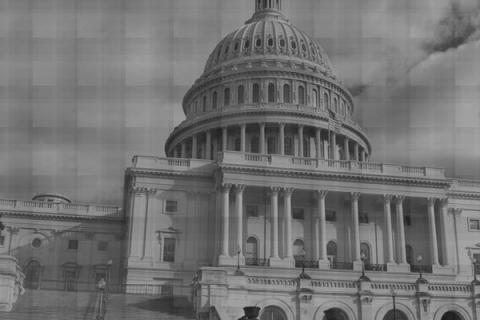In the Tony award winning musical Les Miserables,the student Enjolras leads his fellow students in two triumphal songs,singing about how their planned uprising against the Parisiangovernment is "the music of a people who will not be slaves again" andhow "there is a life about to start, when tomorrow comes." The title ofthe more well known one is "Do you hear the people sing" and itsgeneral gist is something along the lines of "Students of the worldunite! You have nothing to lose but your books, desks and report cards!"
And yet, despite the colossal failure which Enjolras's rebellionturns out to be, one has little doubt that the character himself, if hewere real, would be terribly embarrassed by the "protest" whichoccurred at the state capitol last week. According to the San Jose Mercury News, "students and staff membersfrom colleges across the state marched from West Sacramento to thestate Capitol on Monday morning, protesting budget cuts to communitycolleges and proposed fee increases at California's universities. Thousands arrived by thebusload, wearing T-shirts representing their schools and carrying signsthat read, 'We are the future.'"
Well,that's a relief, because they're certainly not the past. After all,this is the same state that was shocked by the free speech rallies atBerkeley, and by the rabid university anarchy which Ronald Reagan waspartially elected to end. As Bob Dylan would say, "The times, they area-changin'." Granted, the numbers attracted to this particular rallyare minimally impressive, but the larger question of whether theyactually accomplished anything is, sadly, left hanging.
The reason for this thousand-strong march was simple: Students atCalifornia's state and community colleges are not happy that they arethe ones being hit by fee increases and spending cuts, which havereduced the number of courses offered while increasing tuition. One canhardly blame them, considering that the state spends 40 percent of its budgeton education, and for that much money, they probably should be gettingmore. However, that problem would require a march on the local teachers' union, not Sacramento, which might be a harder sell. It's not nearly so easy to get in the news.
However, there is a tacit assumption inherent in the protestors'rhetoric which is worth criticizing, and that is the "we are thefuture" cliche which the Mercury News has reported. This is a commonrhetorical refrain among students, but it may obscure something greater-- namely, the question of which of them really are the future,or will impact it.
This question has been treated at great length bythe educational scholar Charles Murray, who published an article recently defending the notion that too many people are going to college. However, according to Murray, "Saying 'too many people are going to college' is not the same as saying that the average student does not need to know about history, science, and great works of art, music, and literature. They do need to know-and to know more than they are currently learning. So let's teach it to them, but let's not wait for college to do it." College, Murray claims, should be for the really advanced things - the things one would talk about after learning the basics of our cultural heritage.
In a cash-strapped time like this, Murray's ideas have specialrelevance, since a renewed interest in secondary education would do twothings -- firstly, it would target expectations so that the overdemandfor college education might be adjusted downwards. After all, studentswho have trouble with the basics of American education are hardlyqualified to enter a more advanced area. But secondly and moreimportantly, it would force a discussion of teachers' unions, sincethey tend to have exponentially more power in secondary schools, and assuch, have more power to damage education there. As such, it's arguablya good thing that the discussion about whether college is essentialcould be forced by this bit of student zealotry.
Enjolras they ain't,but they might have a chance of unintentionally getting some realchange talked about, rather than, to quote the musical again, "wettingthemselves with blood."
